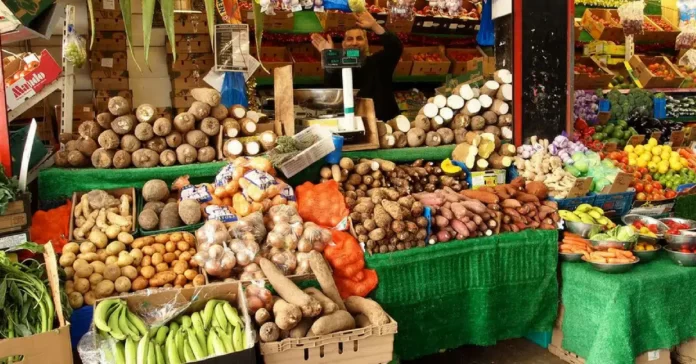Recent weeks have seen a welcome decrease in the prices of various foodstuffs across Nigeria, a trend analysts attribute to the strengthening of the Nigerian naira in the foreign exchange market.
According to a report by Financial Derivatives Company Limited, the sustained appreciation of the naira has led to a downward adjustment in the prices of essential food items.
The report, released to investors over the weekend by Managing Director, Bismarck Rewane, noted significant rebounds in the value of the naira, which stood at ₦1,260/$ in the official market and ₦1,125/$ in the parallel market.
This improvement in the currency’s value has favorably impacted the costs of rice, sugar, flour, and noodles, among other staples.
This price reduction comes as a relief to many Nigerians who have been grappling with high food costs.
The decrease is especially significant as the Federal Government has not yet implemented a new minimum wage, and many households are under financial strain.
Factors Affecting Food Prices in Nigeria:
1. Currency Valuation: The value of the Nigerian naira against the dollar directly impacts the cost of imported goods, including food items.
A stronger naira means lower prices for goods that are imported or depend on imported inputs.
2. Supply Chain Disruptions: Global events such as the COVID-19 pandemic have highlighted vulnerabilities in the global supply chain. Disruptions often lead to increased prices due to shortages.
3. Transportation Costs: The cost of transporting goods within Nigeria significantly affects food prices.
Factors such as fuel prices and the state of transportation infrastructure play crucial roles.
4. Agricultural Productivity: Variability in crop yields due to weather conditions, pest infestations, and other agricultural challenges can cause fluctuations in food prices.
5. Market Speculation and Hoarding: Speculative activities by middlemen can lead to artificial scarcity and higher food prices.
Similarly, hoarding by wholesalers in anticipation of higher prices can reduce market supply and increase prices.
6. Government Policies: Tariffs, subsidies, and import bans can all affect food prices.
For instance, import restrictions on certain food items may lead to increased demand for locally produced alternatives, pushing up prices.
Naijahitz, in this article, has deemed it fit to write about the price of bags of some food commodities this week.
Price Of Bag of Rice
Foreign rice – ₦85,000
Gerawa Premium Parboiled Rice – ₦69,000
Long Grain Tomato Rice – ₦70,000
Parboiled rice- ₦70,500.
Stoned-free Nigerian rice – ₦65,000.
Price Of Bag of Beans
Peeled Beans for Moi Moi – 50kg (₦70,000)
Sweet Butter Beans – 50kg (₦70,000)
Soyabeans – 100kg (₦85,000)
Price Of Bag of Garri
Ijebu Garri – 50kg (₦45,000)
Normal white garri – 50kg (₦43,000)
Yello Garri – 50kg (₦45,000)
Price of Noodles
Indomie Belle Full Pack 280g X 16 – ₦12,500
CHIKKI Indomie Instant Noodles – ₦8,000
![]()



